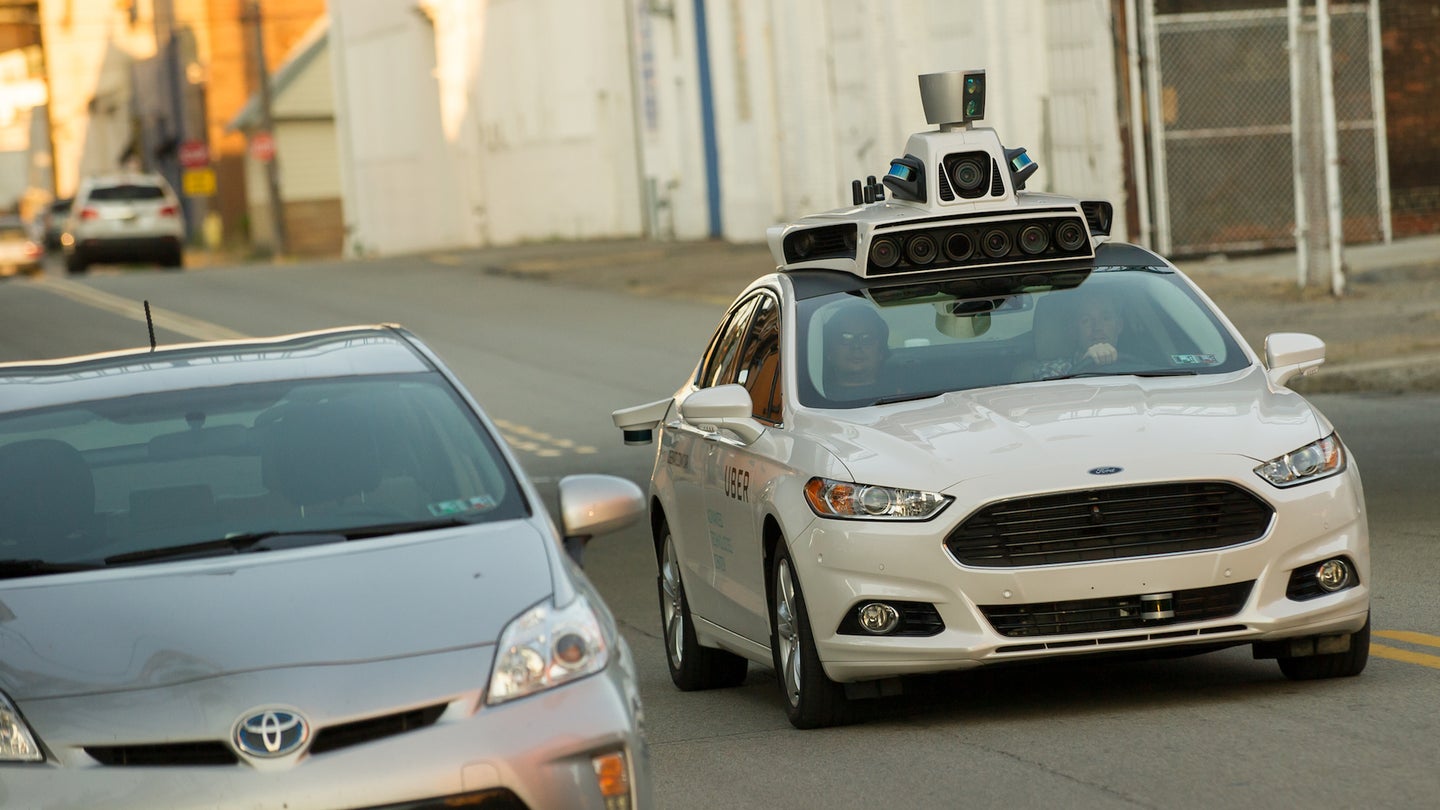Many Cities Hope Self-Driving Cars Will Fill Transit Gaps
It’s all about that last mile.

While the lack of communication between General Motors and New York City officials shows what can go wrong when when self-driving cars are deployed in cities, a new survey shows that city governments expect autonomous vehicles to offer at least some benefit. Most cities have only just begun preparing for self-driving cars, according to a new Bloomberg Philanthropies survey. But the ones that are expect autonomous cars to help fill in gaps in transit systems when they arrive.
While city officials eventually see autonomous vehicles being used for everything from taxi services to freight hauling, the survey found that most expect the first major use to be so-called "last mile" transportation. That refers to getting people from transit hubs like subway or commuter rail stations to their final destinations.
That speaks to a crucial issue of self-driving car use. The "last mile" scenario implies that self-driving cars will complement public transit, not compete with it. But it's widely assumed that self-driving cars will primarily be used for ride sharing, and a recent study found that existing ride-sharing services reduce public transit use. If people choose cars—autonomous or otherwise—over public transit, traffic congestion will likely increase.
Regardless of how officials expect self-driving cars to be used, most cities don't seem to be ready for them. The Bloomberg survey found that, of 38 cities working on autonomous-vehicle deployment plans, about one quarter prioritized the issue only within the last year.
The survey also identified several major obstacles cities face. Most cities cited "lack of funds" as the biggest issue related to autonomous-car deployment, followed by "lack of capacity to manage pilot projects." The most prevalent obstacle was a lack of understanding of what issues require city action, indicating that the newness of the technology may be hampering efforts to regulate it. It will probably be years if not decades before self-driving cars become commonplace on city streets, but officials still need to get these issues sorted out quickly.
Self-driving cars may not be ready for prime time, but automakers and tech companies are stepping up their development efforts. U.S. cities like San Francisco and Pittsburgh already host self-driving car pilot programs, and the pace of expansion has already caught at least one major city off guard. New York City Mayor Bill de Blasio said he wasn't informed about GM's plans to bring self-driving cars to the Big Apple.
